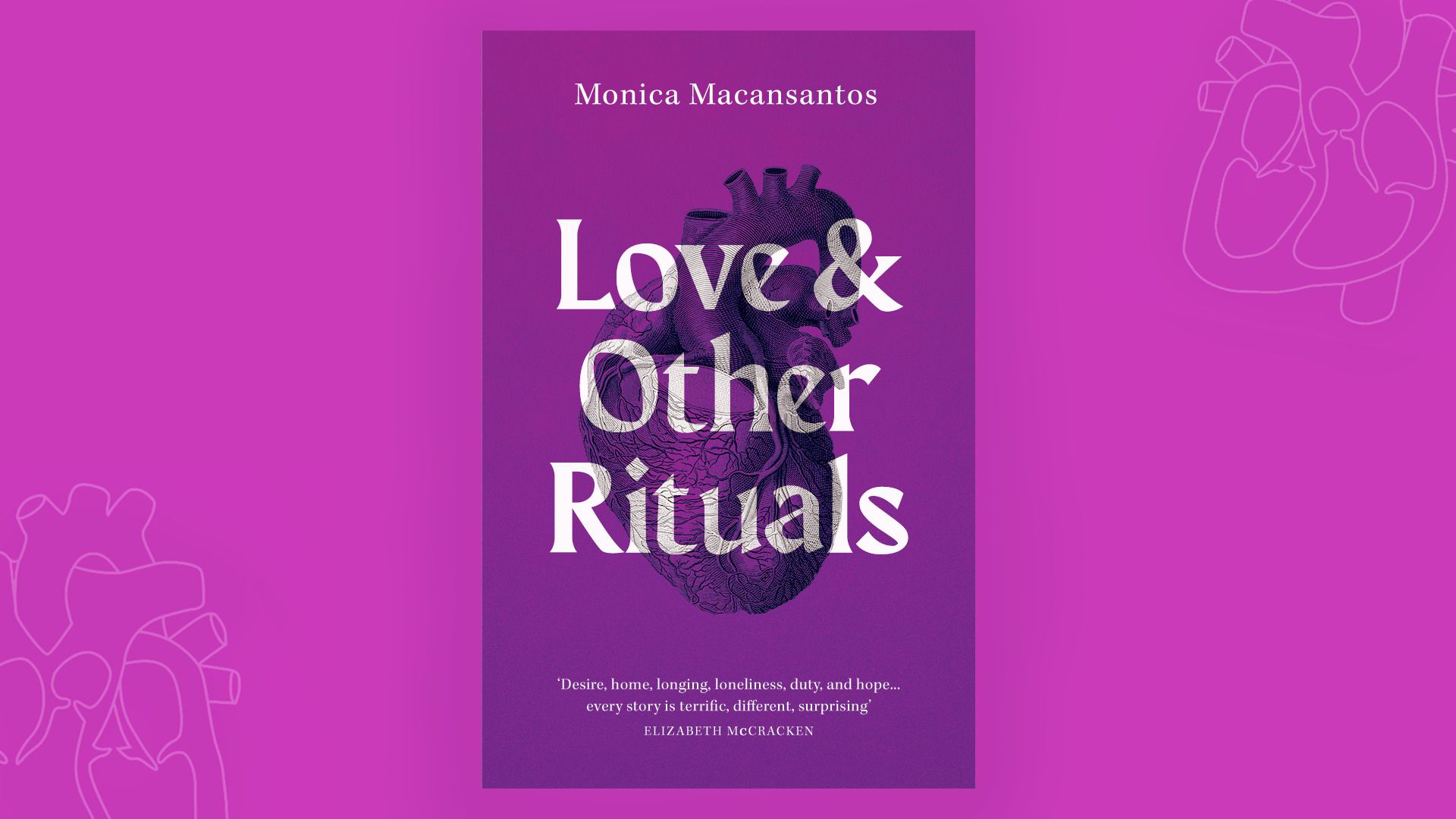Fruit-Flavoured Shampoo: A Review of 'Love and Other Rituals'
Frances Revita enthusiastically reviews the debut collection of short stories by Monica Macansantos.
I have to admit, I’m happy to reread the 239 chapters of Anna Karenina and maybe even all of Sally Rooney’s catalogue, but short stories and novellas? Not really my thing. I generally enjoy spending weeks on end with the characters on the page. Monica Macansantos’ Love and Other Rituals: Selected Stories, however, has stolen my heart. I devoured her words with more enthusiasm than I have when faced with my favourite burnt Basque cheesecake.
Macansantos and I, like approximately 12 million others, are part of the Filipino diaspora. In her debut collection of stories, Macansantos offers us glimpses of the complexities of Filipino life through her characters, while beautifully navigating the relationship between the diaspora and the homeland. A relationship tethered by shared nostalgia and community. Macansantos’ stories are striking, vivid and homesick inducing, especially for those of us in the diaspora.
Macansantos and I, like approximately 12 million others, are part of the Filipino diaspora
The eight stories in Love and Other Rituals are set across the world. From the crisp pine air of the author’s mountainous home city of Baguio to the dry, hazy streets of Austin, and the howling winds of Te Whanganui-a-Tara. Like Macansantos herself, many of the characters have roots in Baguio, an unintentional detail connecting the author to her characters. This shared connection, as well as the specificity of particular local references to that city, ties the characters to a symbolic and geographical home. Of the eight stories in the collection, ‘Love and Other Rituals’, ‘The Autumn Sun’, and ‘Leaving Auckland’ are among my personal highlights. The messy, lonely characters of these three stories lingered in my mind weeks after my first read and I couldn’t help wondering how the rest of their stories could go.
‘Love and Other Rituals’, the collection’s second story, explores the complicated relationship between two men, Kardo and Rene. The two have a mutually beneficial arrangement: while Rene receives sex and intimacy, Kardo gets money to provide for his growing family. Alongside the taboo nature of their relationship, there is the additional tension of the class and power imbalance between the two. The ‘Other Rituals’ part of the title can be understood as the relatively mundane aspects of their time together that have become habitual extensions of their displays of care and affection. Desire and longing permeate the pages of the story and I cannot put it any other way but that I truly ate this story up. Without giving too much away, I am a sucker for bittersweet stories that leave me wondering what could have been. It is fitting that this story is the book’s title, as it is one of the absolute standouts of the collection.
‘The Autumn Sun’ is the fifth story in the collection. It follows Tony, a Filipino student pursuing his PhD in Newark, Delaware, who unexpectedly runs into an old friend (read: fling), Socorro, from his time as an undergrad in the Philippines. They both hail from Baguio but only met as students in Manila. The narrative moves between the past and the present, and while they are at vastly different points in their lives, the choices they have made continue to bring them to the same places. Socorro and Tony pose as reminders of home to each other in the foreignness of Manila and Newark. There is some comfort to be found in familiarity which, in this case, comes in the form of a person. ‘The Autumn Sun’ is just one example of Macansantos’ ability to describe homesickness and alienation with such poignance that it almost makes me want to relive those feelings.
‘Leaving Auckland’, the final story of the collection, revolves around two young Filipino immigrants, Maya and Paolo, who meet and fall in love. They fly between Tāmaki and Te Whanganui-a-Tara to see each other. They are confronted with their loneliness, and again, alienation, as their relationship progressively deepens. There is a conversation between the two about Paolo historically only dating white women and Maya exclusively dating non-white men; a conversation that my POC friends and I are all too familiar with. There is the added tension of both protagonists being non-white tauiwi residing in Aotearoa, with Maya being a recent immigrant while Paolo has mostly grown up away from the Philippines. Their intimate conversations and introspection felt like a reflection of my own thoughts and conversations with friends. Macansantos’ strength lies in moments and conversations like these, that accurately depict the complex and nuanced existences of diaspora Filipino people.
If home is where the heart is, then I would like to cut my heart into tiny pieces and disperse them across all the spaces I call home.
If home is where the heart is, then I would like to cut my heart into tiny pieces and disperse them across all the spaces I call home. This is obviously an impractical and fatal solution. In Macansantos’ stories, however, home is a multisensory experience, memories that elicit an aching feeling. A feeling affectionately found in the unwarranted comment of “You’ve gained weight!” as a greeting, the rekindling of old friendships in a foreign land, and the jumbled scentsof “steamed corn, roasted peanuts, car exhaust and newly washed hair”.
The specificity of the scent of freshly washed hair brought up a memory for me. I remembered going to Sunday mass with my mother when we were living in Singapore. It may have been pure happenstance but almost every person there with fresh, halfway-dried hair was also Filipino. I would sniff the air wondering if they were all part of a secret club that used the same fruit-fragranced shampoo. The secret, I think, is either Creamsilk or Sunsilk, two of the most popular shampoo brands in the Philippines, with oversaturated advertising promising silky, soft, straight hair that could get you any man of your desire – but I digress.
Love and Other Rituals: Selected Stories is published by Grattan Press. Available for purchase online, in select Australian bookshops, and Good Books in Aotearoa.
This essay is featured as part of Issue 07: Aroha, guest-edited by Natasha Matila-Smith. Click here to read other published essays in the issue!

